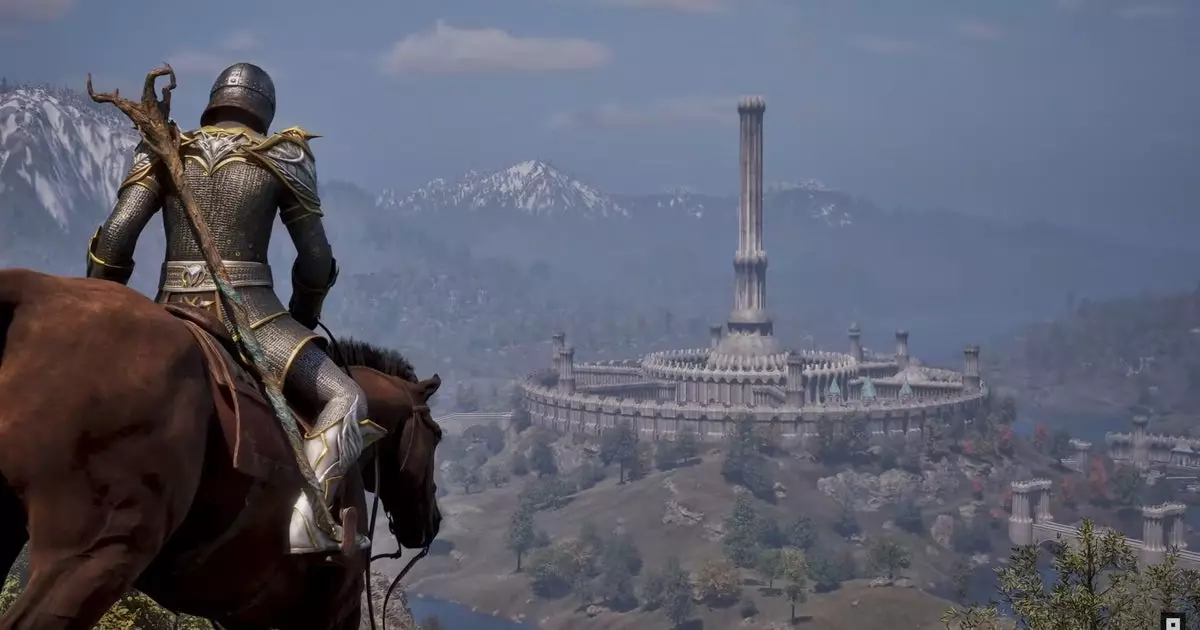Since its initial leak, the remaster of *The Elder Scrolls IV: Oblivion* has been surrounded by an aura of excitement and apprehension. Bethesda, known for its grandiose worlds and intricate storytelling, has finally pulled back the curtain on this major title, releasing a trailer that showcases not only aesthetic upgrades but also significant gameplay enhancements. Priced at $50 on Steam—with discounts available from trusted vendors—this remaster arrives at a pertinent time for both long-time fans and new players eager to delve into the rich fabric of Tamriel.
However, the question lingers: can a remaster truly capture the nostalgia while also appealing to contemporary gamers? That balancing act is no small feat, and the stakes are exceptionally high when dealing with a beloved classic like *Oblivion*.
Modern Enhancements and Nostalgic Sentiments
One of the most talked-about features in this reboot is the ability to sprint—a simple yet transformative mechanic that adds a layer of fluidity to exploration and combat. Alongside a reimagined leveling system, described as a hybrid of *Oblivion* and *Skyrim*, players may find themselves grappling with a familiar yet refreshingly new experience. The intent to address the original’s controversial level scaling hints at Bethesda’s commitment to learning from past missteps, a move likely to be appreciated by a player base that craves fairness in progression.
Another noteworthy change is the introduction of a modernized third-person perspective, which aims to eliminate the clunky experience of navigating the virtual world. The developers promise that the clumsy mechanics of past iterations have been refined, providing players with a smoother journey through the epic landscapes of Cyrodiil. However, one must ask: will these enhancements capture the essence of what made the original so memorable, or will they overshadow its quirky charm?
Furthermore, the remaster boasts an overhauled graphical experience thanks to Unreal Engine 5, with real-time lighting and revamped visual effects. While these improvements are visually stunning, they raise an important concern: do they risk erasing the unpolished qualities that gave *Oblivion* its character? The charm of crashes and AI that sometimes acted like they were in an improv play can evoke nostalgia in many players; the question is whether all those quirks will be lost in the name of modernization.
Voice Acting and Character Depth
The remaster also aims to enrich the experience through a new lip-syncing system and re-recorded dialogue, enhancing the storytelling element. By making the interactions between different fantasy races more believable, Bethesda is potentially deepening the immersive quality that players seek in role-playing games. Players can now expect their characters’ quirks and idiosyncrasies to resonate more authentically. However, concerning character depth, can its revamped dialogues truly capture the idiosyncratic nature of NPCs? Or with modern polish, will they lose their quirky, almost absurd charm?
While some aspects of the game, such as lockpicking and speechcraft, remain relatively untouched, their redesign may affect the renowned complexity of *Oblivion*’s gameplay. Will players find that the more modern feel compromises the challenge that made these mini-games endearing? Such coterminous shifts must be approached with care, for as fans have learned through past remasters, the spirit of the original game is as important as its polish.
Exploring uncharted territories?
The remaster’s development journey highlights a collaborative effort between Bethesda and Virtuos, which could be interpreted in myriad ways. While partnerships can bring fresh exuberance to a legacy title, they also introduce uncertainty regarding the original team’s vision. Is there a risk of detachment? Will the new developers fully grasp and replicate the unique spirit of *Oblivion* that fans have cherished for years? Engendering the soul of a game through external collaboration is fraught with challenges that can lead to mixed outcomes.
As hype builds leading into the game’s release, only time will reveal whether this remaster will be a triumphant return to Cyrodiil or a cumbersome overlay that strips away essential elements. The risks associated with remaking a fan-favorite game are significant, and while nostalgia may be a powerful allure, the quality of the final product will determine whether this revival will be celebrated or lamented by its community. The possibility of traversing a beautifully remade world while retaining the idiosyncratic heart that made the original an icon stands as an exciting but precarious promise.

